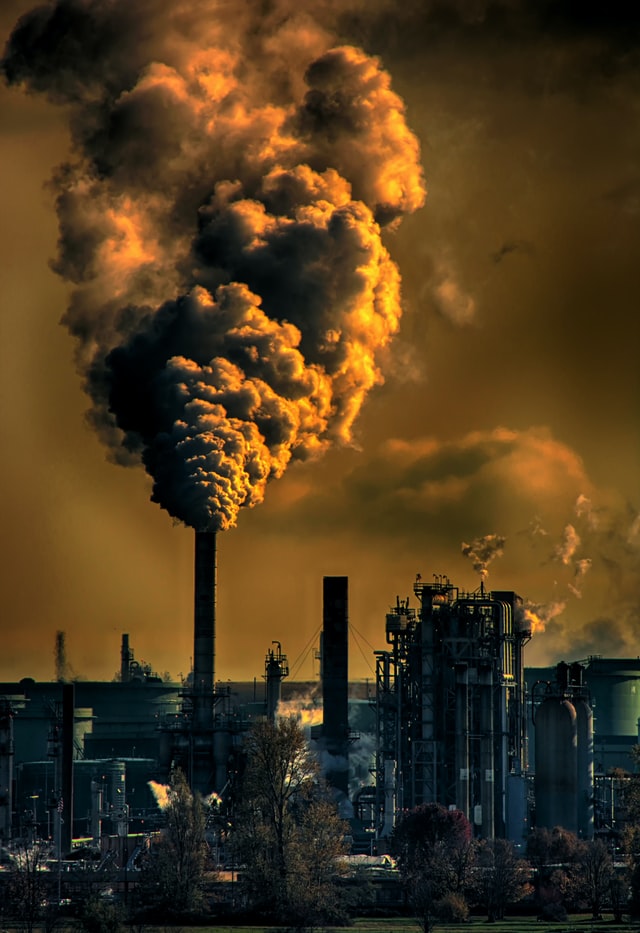
Corporations, Climate and Control: Domination in a corporate society.
Article by Hannah Leary
Photo by Chris LeBoutillier on Unsplash
By the 34th office working hour of the year, in 2021, it was found that bosses of top British companies already earnt the amount of money of an average UK worker. [1]With that amount of power, it is understandable why the world has become capitalistic and corporate-orientated but how are we controlled by them?
A Fundamental Institution
Corporations have been around since the 18th century and have ruled our lives ever since. Insanely the 2021 revenue of WalMart was $559bn which is higher than the GDP of the world’s 24 richest countries. Since these companies are dominating a massive amount of the economy, author of [2]The Corporation Joel Bakan stresses we are inescapably surrounded by the iconography, culture, and ideologies of corporations. In a society where corporations hold that much power, is it possible to not be controlled by them? Due to their amount of influence, corporations are now viewed as social institutions. This means they have the same influence over the public as the family or even the government. According to 2017 revenues, 69 of the top 100 economic entities are corporations rather than states.
A Planet Destroyer
A Guardian study found [3]that 71% of global emissions are the result of only 100 companies. I think from that sentence alone I have said enough. The media constantly encourage the public to buy sustainable items, yet the main culprit of increased pollution and climate change is found in corporate power. More than half of global emissions since 1988 can be traced to 25 corporate and state-owned companies such as ExxonMobil and Chevron. It is apparent that corporations are dominating society and the climate which is not only morally unacceptable but realistically and economically absurd! Fossil fuels and the land won’t last forever; eventually companies will run out. Most disturbingly, this is not new information to companies either. Exxon documents revealed that their own research predicted climate change dangers as early as 1981 yet according to Greenpeace figures Exxon continued to put $30 million into climate denial. This company had the chance to open a public debate, reconsider their operations and make valuable changes, yet they actively chose to ignore the dangers, dictating the public’s right to know what is happening on their planet. Sadly, Exxon is not the only offender. Just take a look at the [4]Volkswagen scandal of 2015 where the company cheated nitrous oxide tests in diesel cars. Time and time again, corporations have ruled the globe all to gain more economic power for themselves.
An Enemy, not a Friend
Corporations provide jobs to millions across the globe seemingly providing a sense of purpose and financial security. This is certainly the case for some companies like [5]Toms who provide shoes to children across 70 different countries, giving their employees the chance to submit ideas they would like to happen and go on company trips. However, it is highly evidenced that a lot of companies do not take care or responsibility for their employees. Most workers from underdeveloped countries work excessive hours and earn minimum wage or less in dreadful conditions. So yes, this might lead to speedy deliveries and big money for the West but amounts to little for the workers. A tragic example of this was the [6]Rana Plaza building collapse of 2013. The complaints about building cracks and the security of underpaid garment workers for companies such as H&M and Zara were not listened to resulting in one thousand people’s deaths. This event was not a horrible accident, it was an example of the lack of corporate social responsibility towards the people that earn them money.
In the technological age, there are also ethical problems when it comes to employees’ privacy. In 2006, [7]Deutsche Bank was caught spying on its management members and some of their investors. Since someone on the board leaked information five years prior, the company hired a detective agency to spy on contacts between board members and media figures and kept tabs on their personal lives. This is proof that corporate control has gone too far from dictating the private lives of staff to blatantly disregarding their safety.
As [8]Bakan argues, corporations “like the church and the monarchy in other times… posture as infallible and omnipotent, glorifying themselves in imposing buildings and elaborate displays.” Corporate businesses use their economic capital and influence to dominate the climate, their employees and consumers. With control as strong as the monarchy, religions, and governments, will we ever escape?
[1] https://www.bbc.com/worklife/article/20210125-why-ceos-make-so-much-money
[2] Read Joel Bakan’s The Corporation: The Pathological Pursuit of Profit and Power pages 5-27 for more detail.
[3] https://www.theguardian.com/sustainable-business/2017/jul/10/100-fossil-fuel-companies-investors-responsible-71-global-emissions-cdp-study-climate-change
[4] https://www.theguardian.com/sustainable-business/2015/dec/30/vw-exxon-lobbying-brazil-mining-tragedy-toshiba-corporate-scandals-greenwashing-climate-change
[5] https://www.theguardian.com/careers/2016/feb/11/working-for-a-company-that-cares-could-be-the-secret-to-a-happy-job
[6] https://www.theguardian.com/sustainable-business/2015/dec/30/vw-exxon-lobbying-brazil-mining-tragedy-toshiba-corporate-scandals-greenwashing-climate-change
[7] https://www.theguardian.com/sustainable-business/2015/dec/30/vw-exxon-lobbying-brazil-mining-tragedy-toshiba-corporate-scandals-greenwashing-climate-change
[8] Read Joel Bakan’s The Corporation: The Pathological Pursuit of Profit and Power pages 5-27 for more detail.

0 Comments